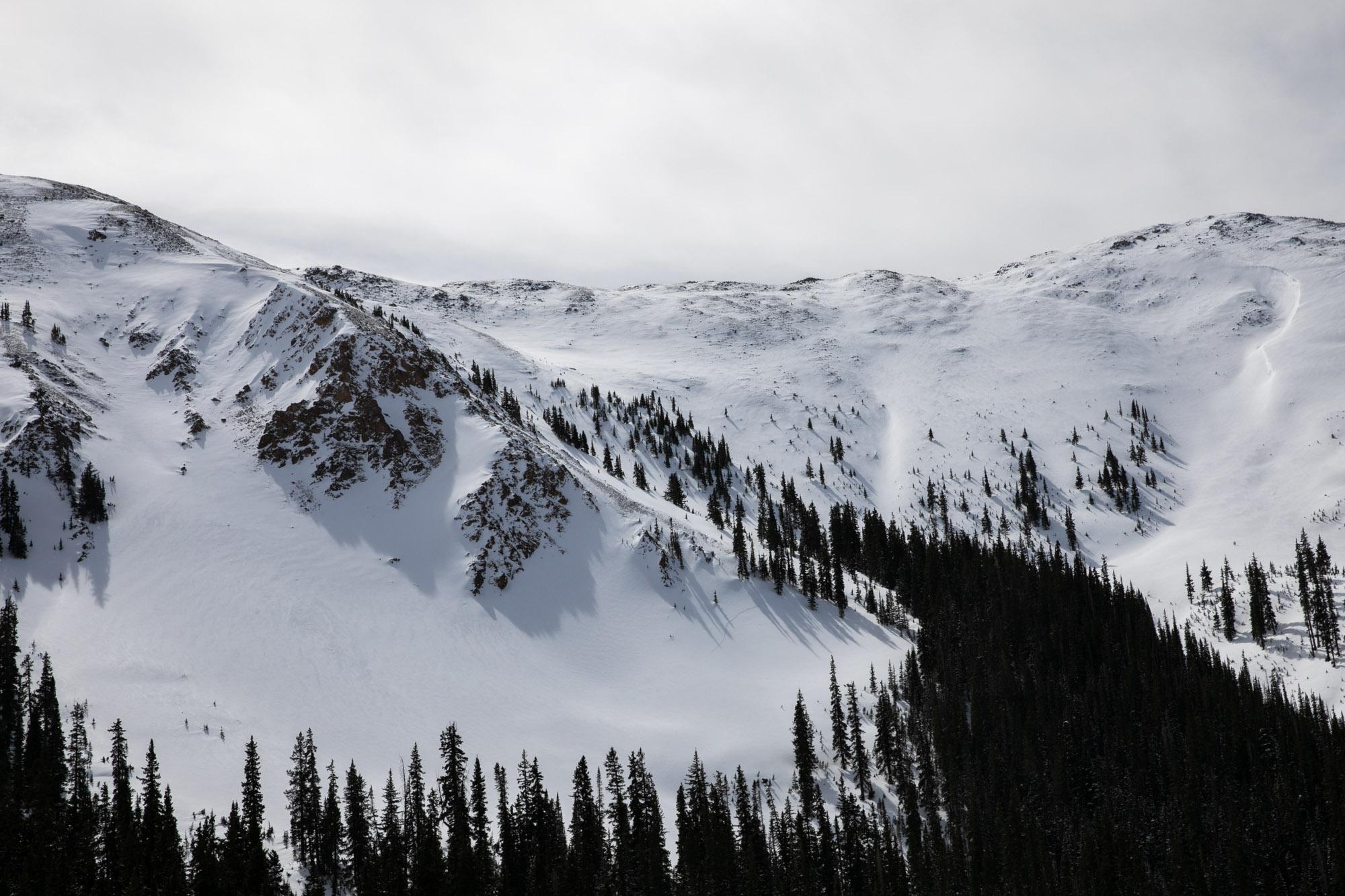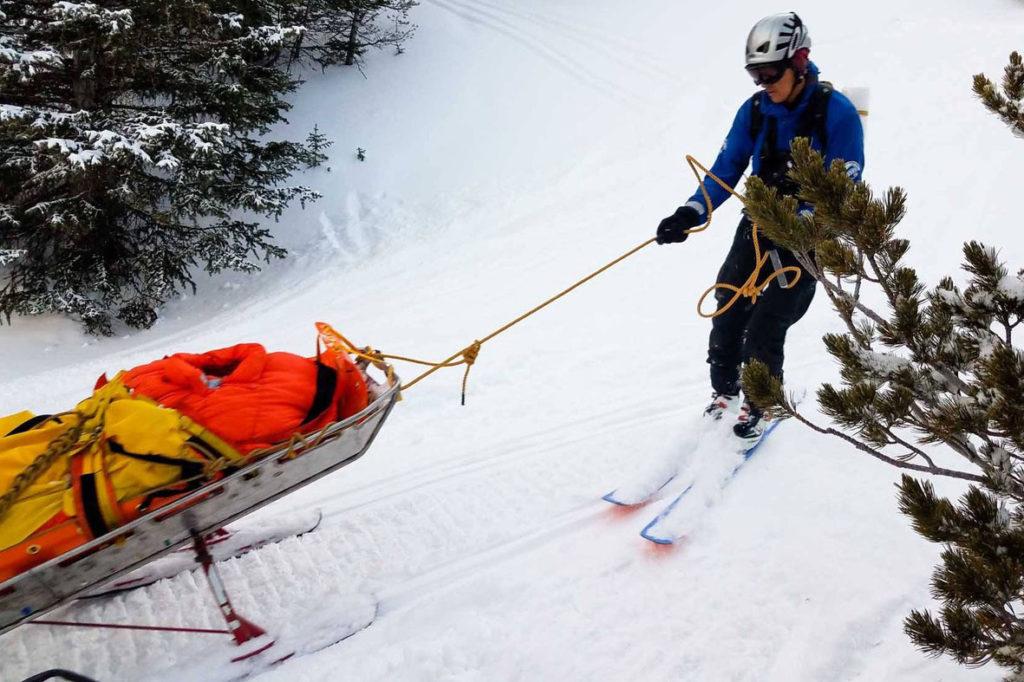
Updated Friday 3/20, 1:25 p.m.
With new snow on the ground and a state full of people who’ve been largely shut indoors in order to limit the spread of COVID-19, this weekend might seem like the perfect opportunity for Coloradans to get some fresh air.
But officials and search and rescue teams want people to know their limits and not to take big risks — for your sake and theirs. The volunteers who respond to people who are lost or have been injured are following national and state health department guidelines, but don’t want to put themselves at risk.
“While we will still respond, we'll still rescue them — it's not with the same resources that we would use under normal circumstances. So they ought to dial back the risks that they take and places that they go with that in mind,” said Steve Wilson, a public information officer with the Alpine Rescue Team.
Dawn Wilson, who is also a public information officer with the Alpine Rescue Team and is married to Steve Wilson, puts it this way: “It's kind of like going to a community pool with no lifeguards. If you feel safe, do it. But if there's any doubt in your mind, you may want to stay out of the water.”
- ‘Everyone’s Just Heartbroken’: Closure Of Winter Park, Other Ski Resorts, Leaves Uncertainty In Its Wake
- Gunnison County Effectively Shutting Down Public Life To Fight COVID-19
- In Coronavirus Hotspot, Vail Health CEO Makes Dire Call For Social Distancing
And while most people won’t go hiking when they feel like they have the flu, Colorado Search and Rescue Association President Jeff Sparhawk said teams are still following best practices to protect themselves from the new coronavirus, including using masks, gloves and goggles.
“We're putting that on ourselves. We're putting it on the patients that we have,” Sparhawk said.
He said that people who do feel the need to get out really should be paying attention to the avalanche forecast.
“Let somebody know where you're going and if you change your plans, let them know that you've changed your plans. Don't travel in the backcountry alone, and don't travel in the backcountry unless you have the appropriate gear,” Sparhawk said.
After Thursday’s snowstorm, avalanche danger is considerable in Colorado’s high country. Ethan Greene, director of Colorado’s Avalanche Information Center, said people should especially be prepared if they’re planning on recreating in the backcountry over the weekend.
“The big difference right now is that with the ski areas closed, there are not avalanche control teams out there patrolling the area so those are backcountry slopes,” he said. “The same sort of avalanche conditions that you find generally in the backcountry you may find on slopes that look like ski areas most of the time.”
Breckenridge and Keystone resorts are technically open for uphill access but “we are not encouraging the activity at our resorts for a number of safety concerns,” said spokeswoman Loryn Roberson.
On Friday, Keystone and Breckenridge tweeted out that they had closed all areas of their resorts out of safety concerns and would not allow uphill access.

Colorado Gov. Jared Polis ordered ski resorts to be shut down to help reduce the spread of the new coronavirus. Because of that, the resorts don’t have ski patrol or employees working on the mountain. Recreators are required to call the Uphill Access Hotline before accessing the mountain.
Greene said Thursday’s storm will cause increased avalanche danger that will fluctuate through the weekend but then will taper off by Sunday.
Drew Hildner, with the Rocky Mountain Rescue Group, said his team is preparing for more rescues as the weather gets nicer — and taking more precautions to protect themselves from the new coronavirus, including self-quarantines if needed.
“We're anticipating a higher amount of rescues just as people start to get cabin fever and start getting outside. So we will be utilizing N95 masks,” Hildner said. “If we do a rescue on someone that has symptoms or a known exposure to COVID, it might be the case that we've lost those eight members for 14 days on rescues at a minimum.”
And no matter how appealing the mountains look for skiing and other outdoor activities, Sparhawk said it’s not worth it because of the high number of COVID-19 cases there.
“Stay out of the high country. It doesn't make a whole lot of sense right now,” he said.
Not to mention that many of the mountain counties are simply closed to people who don’t live there.
Summit County’s Office of Emergency Management is asking people to stay off the roads and avoid traveling on Interstate 70’s mountain corridor — especially during inclement weather. Hotels and other lodging have been shut down in the county in response to the coronavirus outbreak.
“Due to current social distancing orders designed to slow the spread of COVID-19, Summit County’s ability to activate an emergency shelter is severely limited, and individuals will have to ride out the storm in their vehicles,” a news release from the county said.
State Patrol spokesman Gary Cutler said troopers will do their best to respond to drivers who break down or get into an accident in places like Summit County but they’re acting as though an “accident alert” is in place.
“If we can get vehicles in there, we will,” he said. “We’re trying to keep our troopers as healthy as possible so the least amount of contact that they have to have.”
Of course, getting outside for a while during this time of social distancing is still a good idea, with a caveat.
“Yes, get out, get exercise, do what you need to for your health and your sanity. But I don't think that this is a time for people to push their limits,” Hildner said.









